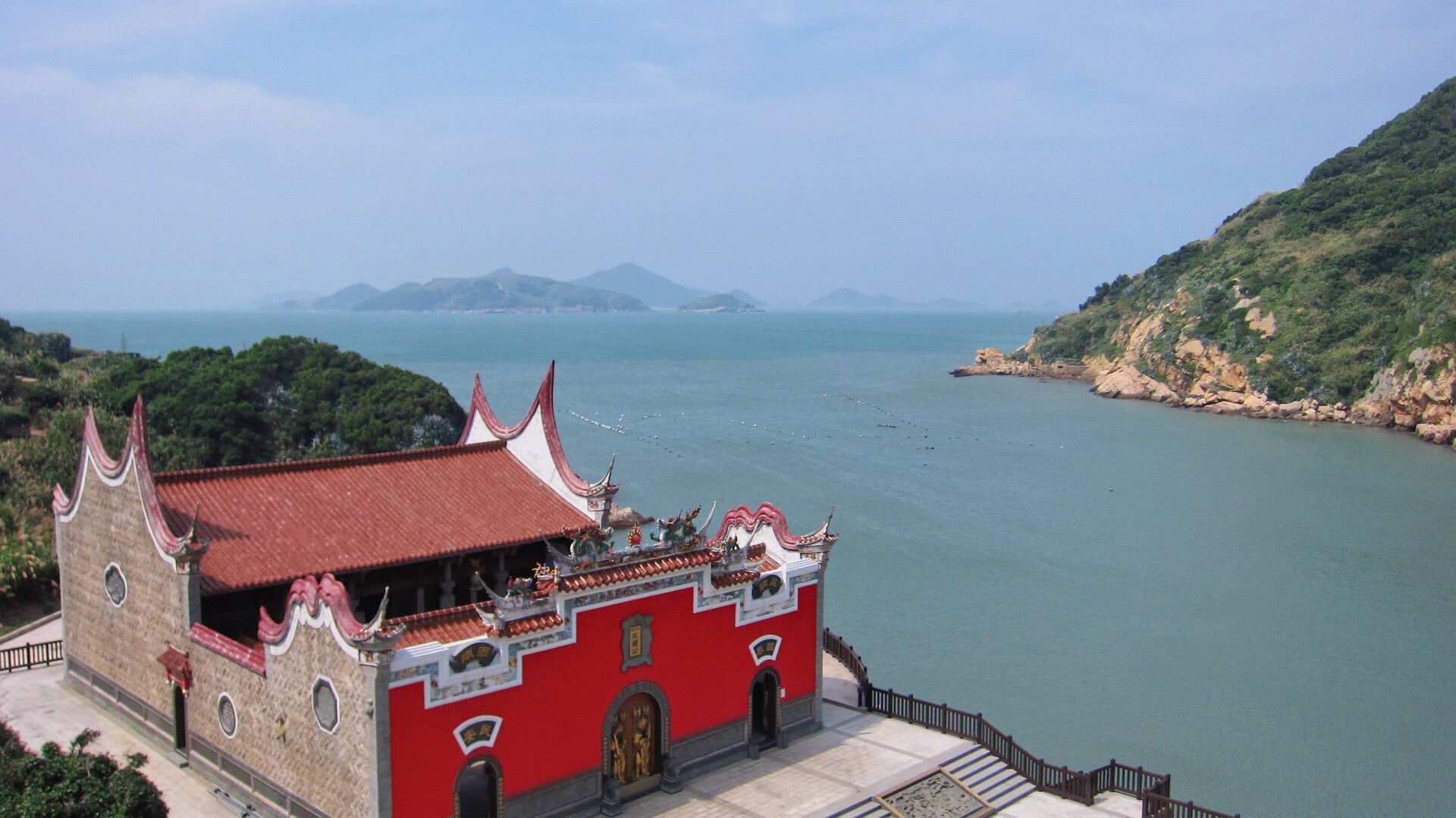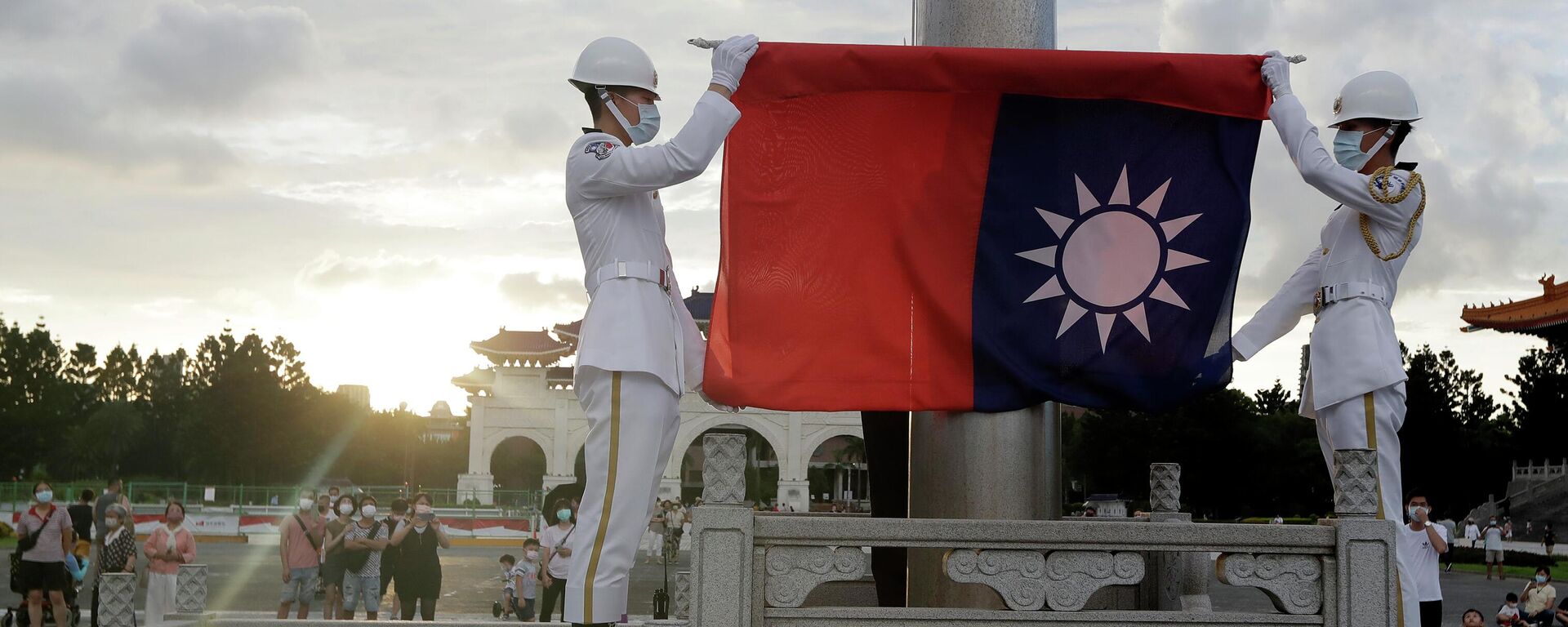Chinese Social Media Users Warm to Elon Musk’s Taiwan Peace Proposal
19:33 GMT 10.10.2022 (Updated: 12:45 GMT 19.06.2023)
Subscribe
The South Africa-born billionaire made waves online and sparked a flurry of commentary by officials in Beijing and Taipei after proposing in an interview with the Financial Times that Taiwan be turned into a ‘special administrative zone’ of China to resolve the Sino-US standoff over the island’s status.
Chinese social media users have offered cautious praise for Elon Musk’s Taiwan peace plan, with many pointing out that it is a de-facto reflection of the People’s Republic’s official position on the wayward island.
“It’s not a bad idea, except Taiwan is essentially already a special administrative zone of China’, a popular comment on Chinese microblogging site Weibo by user 钓鱼岛主 (lit. 'Diaoyu Island Lord') said.
Another popular comment suggested that giving Taiwan the status of a separate province was the maximum compromise Beijing should be willing to make, “but no more.”
In the wake of escalating tensions over the island, some users expressed exhaustion over the idea of Taiwan receiving preferential treatment of any sort, recommending instead that Beijing does away with its ‘one country, two systems’ model, instead proposing a ‘one country, one system’ model in its place.
The debate carried over to Twitter, where mainlanders were heavily outnumbered by anti-PRC Taiwanese activists and US media pundits throwing shade on Musk.
Chinese Ambassador to the US Qin Gang thanked Musk “for his call for peace across the Taiwan Strait” and his special administrative zone idea on Sunday.
“Actually, Peaceful reunification and One Country, Two Systems are our basic principles for resolving the Taiwan question and the best approach to realizing national reunification. Provided that China’s sovereignty, security and development interests are guaranteed, after reunification Taiwan will enjoy a high degree of autonomy as a special administrative region, and a vast space for development,” Qin wrote.
Hong Kong legislative council member Regina Ip Lau Suk Yee also praised Musk, saying “the world should pay attention to this voice of reason and pragmatism.”
Elon Musk has spoken well on Taiwan suggesting it should become a special administrative region like Hong Kong! The world should pay attention to this voice of reason and pragmatism.https://t.co/aqSBdIj3Jg
— Regina Ip Lau Suk Yee (@ReginaIplau) October 8, 2022
Hu Xijin, the outspoken former editor-in-chief of the English-language Chinese newspaper Global Times, also thanked Musk, but warned him that he may have put a target on his back by speaking his mind.
“@elonmusk, you are indeed one of the few people in the West who dare to speak out. This time I support your thoughts and recommendation on Taiwan. But I’m worried DPP authorities [Taiwan’s ruling party] will hate you, as well as many US lawmakers and political elites. They may want to teach you a lesson together,” Hu tweeted.
.@elonmusk, you are indeed one of the few people in West who dare to speak out.This time I support your thoughts and recommendation on Taiwan.But I'm worried DPP authorities will hate you,as well as many US lawmakers & political elites.They may want to teach you a lesson together pic.twitter.com/QjjzKvnP80
— Hu Xijin 胡锡进 (@HuXijin_GT) October 7, 2022
The Musk lovefest from Chinese officials and ordinary social media users followed initial coolness to his proposal from Beijing. On Saturday, Chinese Foreign Ministry spokesperson Mao Ning called Taiwan a “domestic affair” and urged the billionaire to butt out.
Taiwanese officials were also predictably hostile to Musk’s proposal, with Hsiao Bi-khim, the renegade island’s de facto ambassador to the US, blasting the businessman without naming him, tweeting that while Taiwan “sells many products,” its “freedom and democracy are not for sale.”
Some went further and accused Musk of making the proposal based on personal financial interests, given that Tesla has a production facility in Shanghai.
Taipei Mayor and Taiwan People’s Party chairman Ko Wen-je said Musk’s words would not affect Taiwan’s decisions in any way, while Democratic progressive legislator Chao Tien-lin called for a consumer boycott of Tesla products.
China-US tensions are one of two major crises facing the planet today, with the other being Ukraine (Mr. Musk thinks he has the solution to that crisis, too). The island became the focal point of a dramatic escalation in tensions between Washington and Beijing this summer after House Speaker Nancy Pelosi visited Taipei. Pelosi’s visit was followed up by similar trips by other US officials and lawmakers. China responded by staging weeks’ worth of military drills around the island.
Taiwan has been de facto independent from the mainland since the end of the Chinese Civil War in 1949, but Beijing regards it as an inalienable part of China destined for eventual, hopefully peaceful, reunification under the ‘One Country, Two Systems’ model. Chinese have repeatedly warned officials in Taipei against any inkling of pursuing independence as the island's authorities continually seek to expand informal diplomatic ties with the US and other countries.



